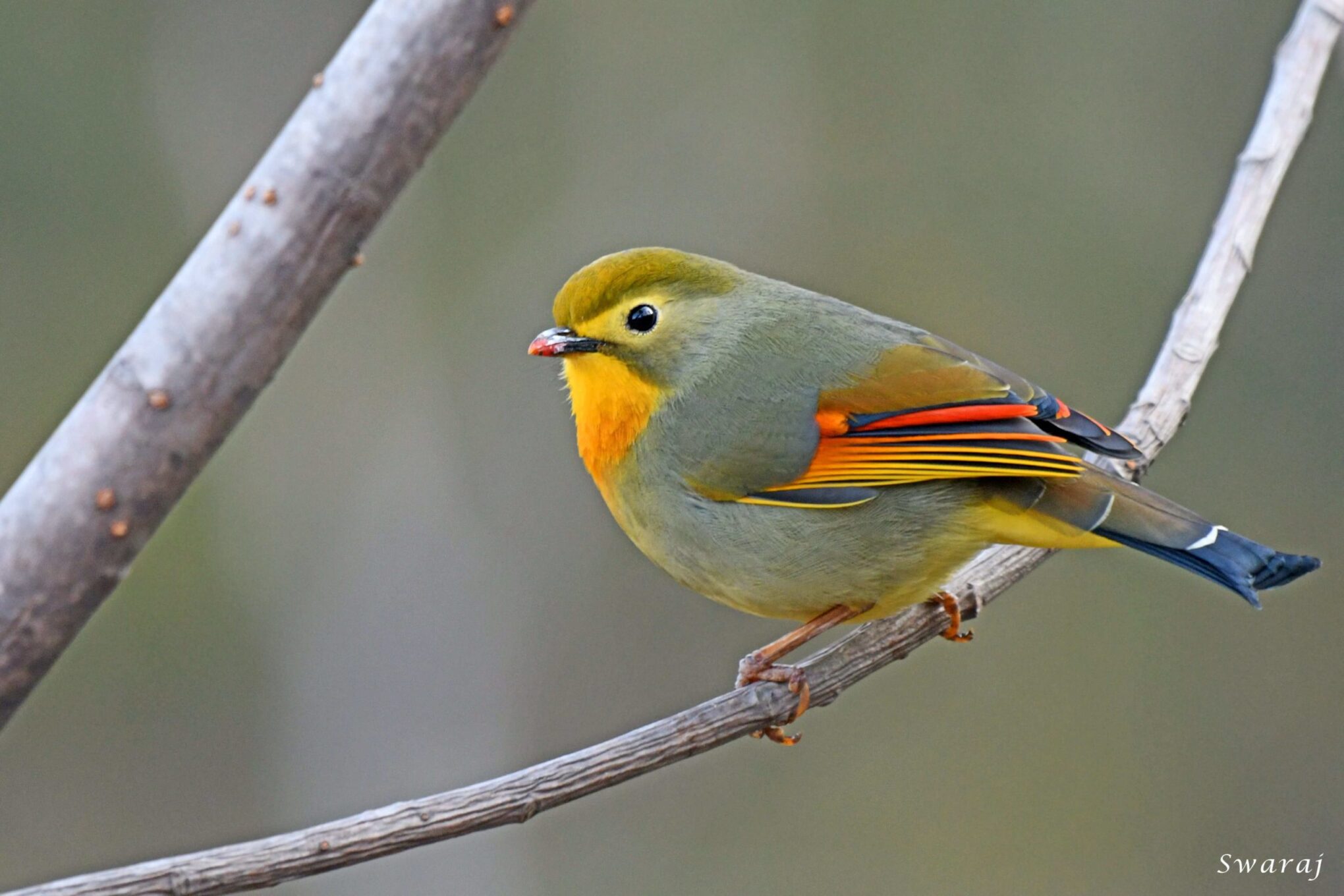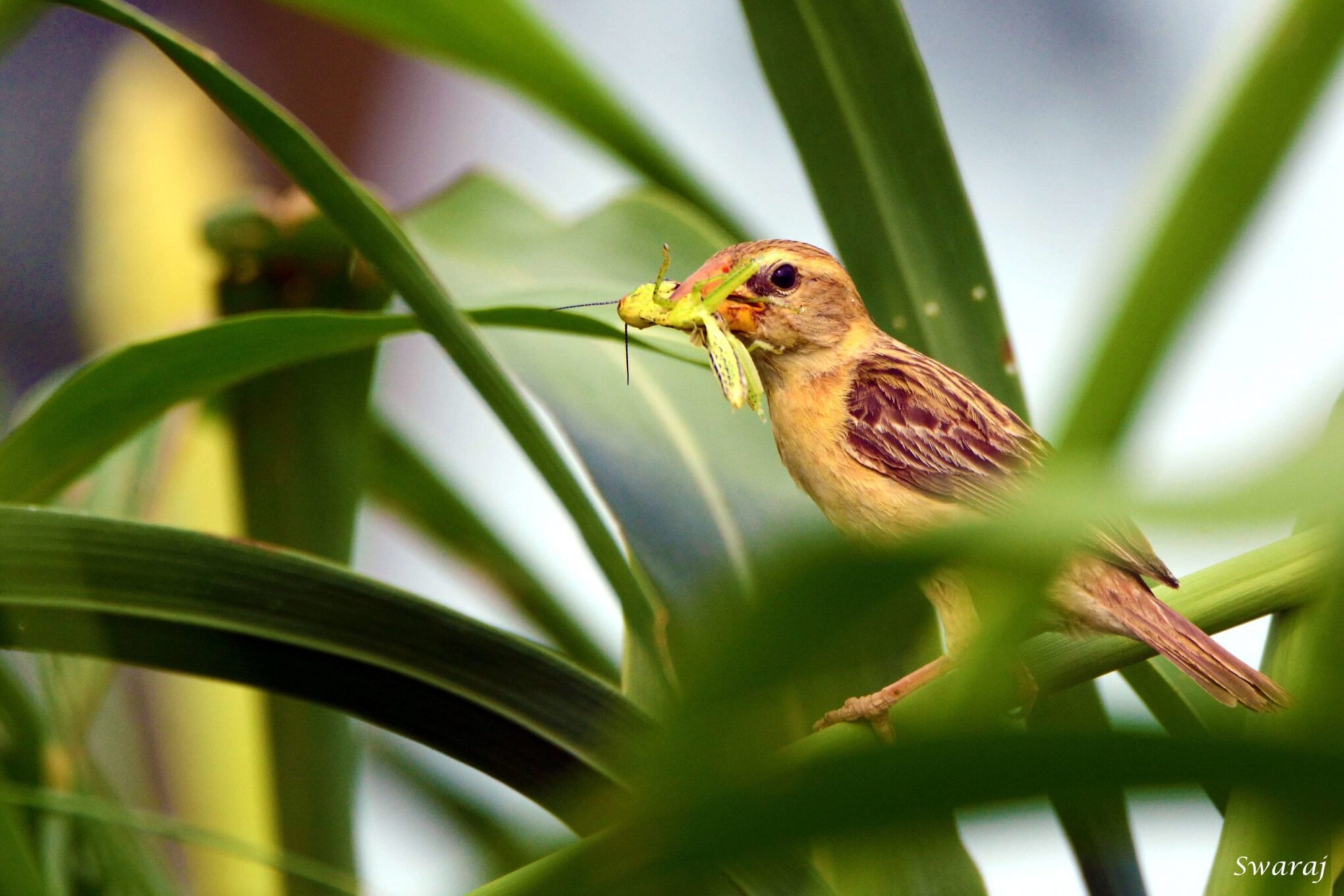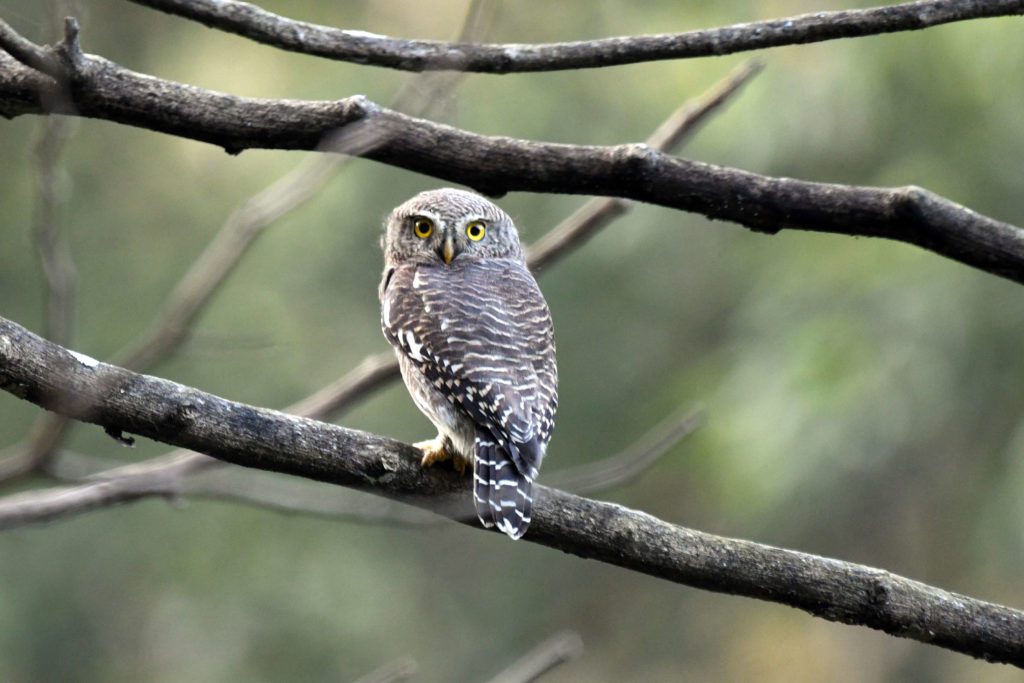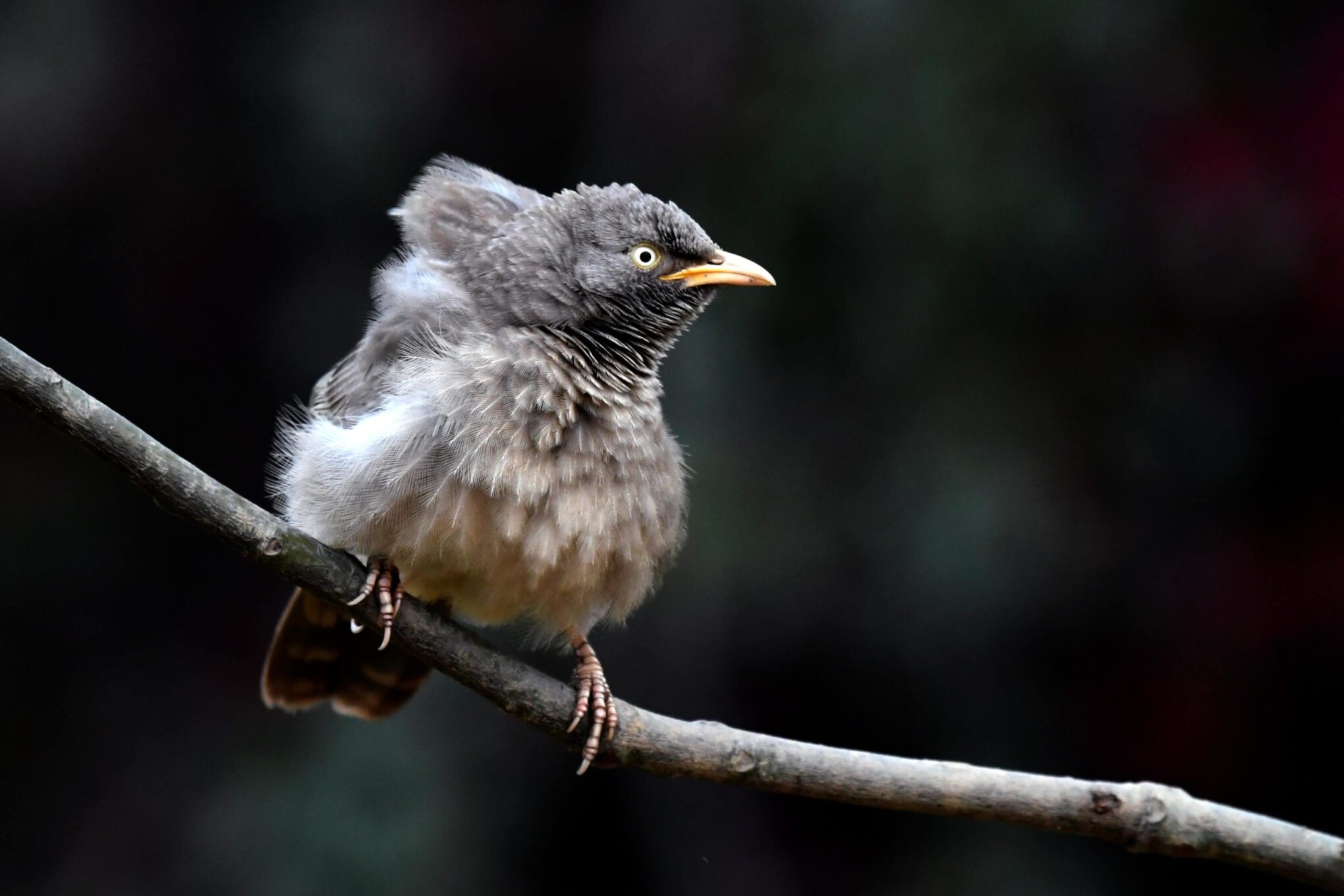Reading Time: 8 minutes
Dr Swaraj, an ardent nature lover, takes us on a journey of a bird lover’s wows and woes, exclusively for Different Truths.
Confession # 1: The beginnings: When silence led to a love for babel
It was October 2013. I was in the thirty-fourth year of teaching career when my throat became recalcitrant. The medical diagnosis was ‘voice nodules’, also known as ‘singer’s throat. My speech therapist instructed me to give complete four-week rest to my vocal cords.
During this period of forced silence, my mood oscillated between elation and despair. I was happy because I had enough time to read. I could live according to my rhythms — the rhythms of the clock I had always resented because they were imposed from without. I immersed myself in those unread books I had purchased, hoping to read them someday.
However, a few days into this silent phase, I realised that my silence was also unwilled.
However, a few days into this silent phase, I realised that my silence was also unwilled. I had not chosen to remain silent. It was medically mandated, an imposition from without, a cure for my bad throat. Besides this, lecturing defined my identity. A singular, hegemonic identity might be constraining, but it also acts as a defensive wall. This wall appeared to be crumbling.
Nevertheless, when our defensive walls break down, we find some breakthroughs also. The morning avian babel provided the breakthrough in our small backyard wilderness. These sounds earlier drowned in the perpetual noise of a habitually regulated life. The mornings now started arriving wafted on the birdsong, ending my alienation from nature.
My silence and the morning avian choir proved to be a discovery period. We discovered many birds in the vicinity of our home. And the discovery of what I wanted to do the most. With the dawn chorus dawned, the realisation that life ransomed to the drudgery of daily chores was half a life.
Tweets, chirrups, coos, caws, trills, shrieks, whistles, chatter and chortle made up the morning choir. Listening to the ensemble and watching the choristers was akin to living a dream. It proved liberating in many ways. It was the poetry of nature. It was pregnant with the possibility of uplifting a person far above the quotidian. I could identify with Emily Dickinson when in a poem, she said:
I dwell in Possibility – A fairer House than Prose – More numerous of Windows – Superior – for Doors –
It was a lesson in sitting still and watching patiently.
It was a lesson in sitting still and watching patiently. There was no desire to monetise the inertial activity. No want to force my will, as Nissim Ezekiel has so aptly suggested in his poem Poet, Lover, Birdwatcher:
To push the pace and never to be still Is not the way of those who study birds Or women. The best poets wait for words. The hunt is not an exercise of will But patient love relaxing on a hill To note the movement of a timid wing;
I had learned to wait patiently, a far cry from the life mortgaged to fast-paced systemic monotony. The delight of watching birds through my old fungus-fogged binoculars proved therapeutic. It helped me connect with myself like never before. In two days, I counted more than twenty different birds that visited our small wilderness.
The passion for birdwatching took deep roots in my heart.


Confession # 2: Guides are not untrustworthy, but the promised birds often play truant
It was late evening in November 2017. There were three of us at the studio point scouting for birds. My wife, I and our birding guide Rahul. This studio point is a famous birding spot in Sattal, an hour’s drive from Nainital in Uttarakhand. Rahul had promised that there would be lots of birds there. The studio point stood on a narrow, slushy, sloping drain by the side of a lake. As Rahul informed us, a dying pond of clay-coloured stagnant water was the favourite haunt of kingfishers. The rains that year had been scanty. But the ground beneath our feet was still quite slippery.
His reputation as a birding guide had the backing of solid recommendations by many birders.
“Shh … Tesia, Sir,” warned Rahul. He was a handsome youth, not more than twenty-five. He was well-built, dressed in camouflage and armed with binoculars. His reputation as a birding guide had the backing of solid recommendations by many birders. “Where?” I asked, peering in the direction Rahul had pointed out. “It has disappeared now. Sir, I told you not to make any sound while walking and not to speak. By nature, birds are shy creatures. The Chestnut-headed Tesia is shy like a newly married bride.” Taken aback, I looked at him inquisitively. Nothing in his mien betrayed that he was married. He didn’t have that look of resignation on his face. What did he know about a bride being shy? Well, there are many things we don’t know about birds. And about our fellow beings too. It is good that many mysteries remain just that, mysteries.
I apologised and asked, “Is there any way we can make it come back?” “Let me try.” He was an expert at pishing, that is, at imitating the bird’s song to attract it. He proudly told me that he could mimic the songs of many birds. He put his cupped hands on his mouth and mimicked: Cheewit cheewit cheewit. The Tesia didn’t show up. Either it didn’t care for a mate, or it was aware of the tricks we humans play. No amount of pishing helped. It refused to oblige. I remembered Ezekiel; you can’t force your will in matters of love.
Susurration from the nearby bushes stopped us in our tracks. It was a sign…
We were undecided whether to linger on or to move on. Susurration from the nearby bushes stopped us in our tracks. It was a sign, and as Eliot says in Gerontion, signs are ‘taken for wonders.’ We turned into stone, waiting for the wonder to happen. Cheewit cheewit cheewit. Silence again. My curiosity was getting the better of my heart pounding at escape velocity. After all, a shy bride like Tesia would be a lifer. Something moved under the thick cloak of leaves. The Tesia, with its bright chestnut hood, appeared for a split second. A glorious vision indeed! It was a moment worth a wait! The sheer beauty of the small bird had me in its thrall. I just stood rooted in a sort of catatonic stupor. Success eluded me as I could not photograph it. But I carry the imprint of the fleeting vision in my heart. Much like in a Chris de Burgh song: “Carry me like a fire in your heart …”
We waited, but the shy model did not break cover again. Exhorted by Rahul, we moved on, wanting to see more birds.
Rahul pointed towards the left. With its impassive lemon-yellow eyes, it was watching us from its perch. Asian Barred Owlet it was. Our eyes met, but they seemed impervious to my presence. I didn’t know what was passing through its mind. Its impassive, piercing gaze had transfixed me. I had no idea whether it was looking at me or through me. I raised the viewfinder of my camera to my eye. But it kept staring at me. It was either utterly dull or gifted with a hermit’s nonchalance. Was it a wise owl, Minerva’s owl? Or was it a plain stupid fellow, the ‘ullu’ as we know owls to be? I couldn’t say.
Whoever it was, its gaze was disconcerting. It had reduced me to a non-entity…
Whoever it was, its gaze was disconcerting. It had reduced me to a non-entity by not even acknowledging my presence. I was friends with a family of Spotted Owlets living near my house. They always acknowledged my presence by bobbing their heads whenever I tried to get too close to their perch. But this one was cool, like a cucumber. Maybe it wanted to be photographed. Being a resident of the studio point, it knew how to pose! I shot good pictures of the excellent model. But we moved on. I felt its eyes following us. A creepy feeling indeed in the enveloping darkness!

With portraits of a single owl from the famed studio point, we retreated into our night stay.
The shy Tesia often teases me in my dreams. Maybe, someday I’ll go there again and try my luck again.
Confession # 3: Questions, incessant questions
People often ask me why do I love birds? Unfortunately, this question has a predominantly practical ring about it. It insinuates some tangible gains to be had from birdwatching. Undoubtedly instrumental rationality has reduced almost everything to a gain-loss equation. And why not? After all, watching birds is a strain on time, which we’re made to believe is money. It is a strain on financial resources as well. The bird lover has to buy expensive equipment and travel long distances. It is a strain on the body also. We have to walk long hours in inhospitable terrains. Hence, this question is not wholly irrelevant. We live in a supremely utilitarian era.
… we realise how vital our love of birds is to us.
However, I believe that the above question could be worded differently. It can be reframed as: “Why not be a bird lover?” Once we do this, we realise how vital our love of birds is to us. We cannot not be bird lovers if we want to understand our humanity. We need to understand our humanity to know our place in the web of life. This is the awareness we need to chastise ourselves out of placing ourselves at the top of the evolutionary ladder. We need this awareness to rid ourselves of that hubris which makes us exploit all life forms.
However, this is not the only question we often confront. There are numerous others too that pose existential dilemmas to us.
Chakki Mord is a place about nine kilometers from Panchkula on the Kalka-Shimla highway. The detour from the highway at the Chakki Mord leads to a village called Bhoj Nagar. The entire fourteen-kilometre route to Bhoj Nagar in the Shivalik foothills is the mecca for bird lovers. Going there is like undertaking a pilgrimage.
We stopped at a place where birds such as Kaleej Pheasants and Rock Buntings are regularly sighted.
This incident took place in February 2018. Accompanied by a friend, I was on this road to Bhoj Nagar. We stopped at a place where birds such as Kaleej Pheasants and Rock Buntings are regularly sighted. We were dressed in camouflage and had cameras that looked like bazookas. Curious about what we were doing, two young boys stopped on their motorbikes. One of them asked, “Are you working for Discovery Channel?” I replied, “No, we’re not.” “Then what are you doing here?” “We’re looking for birds. Do we like to photograph them,” “Will you sell your photos to someone? Will you post them on Instagram?” I said, “No, it’s a private hobby.” In the meantime, they were joined by a middle-aged man on another motorbike. He asked me, “Sardar ji, why do you take the photos then?” My friend said, “Because we love birds.” “What do you do for your living, by the way?” Irritated by this question, I said, “We’re retired professors. We do nothing except watch and photograph birds, butterflies and flowers. Now please let us do our work.” He turned towards the two boys and snapped, “Let’s go. These oldies are idlers whiling away their time with sparrows. Why are we wasting our time here?” They moved on, leaving us unamused, if not outrightly shocked.
This was just one illustrative instance. We get questioned for our commitment or lack of it to burning social issues. It is as if nature has become so alien to us that its wanton destruction is no issue. Is there anything wrong with marvelling at winged beauties? Is there anything wrong with stepping out of the mechanical rhythms of contemporary existence? Stepping out gives us a glimpse of what is missing from our lives!
Let’s reclaim our humanity before it is too late.
Photos by the author

















Superbly written.
Thanks a lot, Sir.
Wao Dr Sahib, very interesting as well as thought provoking beautifully worded piece of excellent text. I thoroughly enjoyed your journey of confessions. The wisdom of your words and the literary quotes take the reader to a different unexplored universe!
Thanks a lot, Dr. Sahib.
Another engrossing, informative article from you, after long it seems. Enjoyed it
Than you so much, Shernaz. Wrote something after a long hiatus. Thank you very much for your encouraging comments.
Enjoyed reading this article. Your articles always help us enriching our vocabulary!
Thanks a lot, Pardeep ji. I’m really grateful.
Very interesting. How the silence of your voice-box rolled down you in the company of birds and resultantly you became a birder is very exciting It is Nature’s benediction. The whole episode is beautifully stitched together ❤.
Thank you so much, Dr. Virk Sir. Most of our birding experiences have the joint stamp; yours and mine.
Prof. Swaraj Raj, what an interesting, informative, and thought-provoking article. Your three confessions are so well argued – with the self, with fauna and flora, and with lesser informed human beings. Your write-up is a testimony that a malady can bring about a divine remedy and a divine connection leading to your love for birds and birdwatching. And your writing style is always incredible and awe-inspiring. Well done!
Enjoyed myself reading the article… Beautifully penned
Thank you so much, Sandeep beta.
Wonderful read.Enjoyed.very well written
Thanks a lot, Prof. Sangeeta ji. I’m really grateful.
Thank you so much, Prof. Narinder. Your fulsome praise is very encouraging indeed.
Prof.Swaraj, another thoughtful piece of writing from your pen!
It is a fact that own noise is making us oblivious to natural sounds. This auditory insensitivity towards sweet melodies is byproduct of the mad race that we all are into. You have rightly said, ‘Let’s reclaim our humanity before it is too late’
Thanks for sharing!
Thanks a lot Prof. Sahib. I’m happy you liked it.
An engrossing narrative with relevant insights for leading a life ‘worth living.’ Yes, we have ‘ransomed our lives to the drudgery of daily chores” cashing on time as money, and the accessories it can avail. An eyeopener to sip our tea at ease, savouring moments in our allotted hours of life, through bird watching, going back to nature..
Thank you so much Dr. Joseph. Your words, coming as they arefrom an established poet, hugely encouraging. I’m grateful.
It’s yet another marvelous write-up with some perfectly proportionate expressions. Sir you have made the literally live the experience you had.. The icing on the cake is the list of intriguing questions..
Thanks for sharing the link.
Thanks a lot, Manoj. I’m happy you liked it and obliged too.
As usual a thought provoking and interesting article, Sir. It’s a pity indeed that spending time with nature is considered wastage of time or the job of idlers. Whereas it is the absence of this connection with nature, which has actually led to the stress in everyday life. Thanks for sharing the article, Sir.
Thanks, Dr. Ankdeep beta. You are absolutely right that spending time with nature is more often than not considered waste of time. But then why allow someone to dictate to us what we need to do and what we shouldn’t? I am happy you liked it. Thanks a lot.